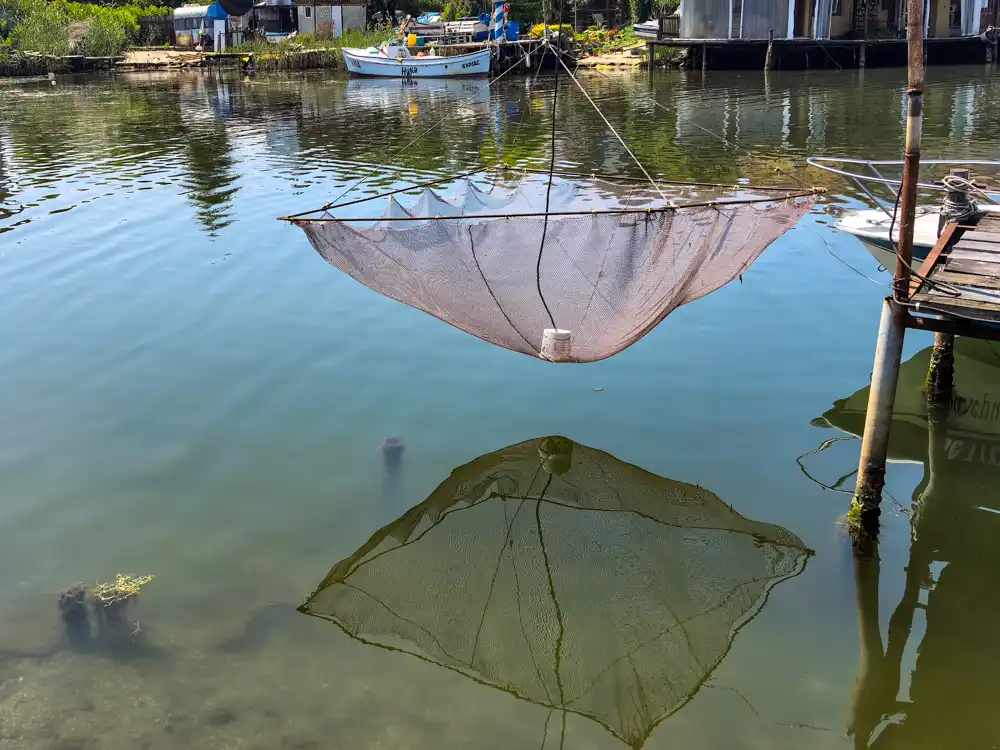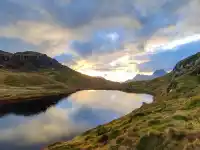Imagine patches of burnt‑out engine oil underfoot, derelict boats painted in bright hues, battered shacks vying for space beside scrap‑metal piles. That was how I pictured Burgas Fishing Pier—Ribarsko Selishte—aka “Ченгене скеле,” a spontaneously formed fishing village born in the ’70s after local boats were pushed out of Burgas harbor.
Heavy work, shacks without electricity yawning open doors, makeshift metal huts, nets drying in the sun, fishermen slaving away in their rubber boots—I couldn’t have pictured a more authentic slice of Bulgarian fisher‑life. And nowhere did I savor tastier fish soup. But later, thanks to Dimcho, I realized there’s more. The main thing: you actually have three fish restaurants to choose from. 🙂
Ченгене скеле
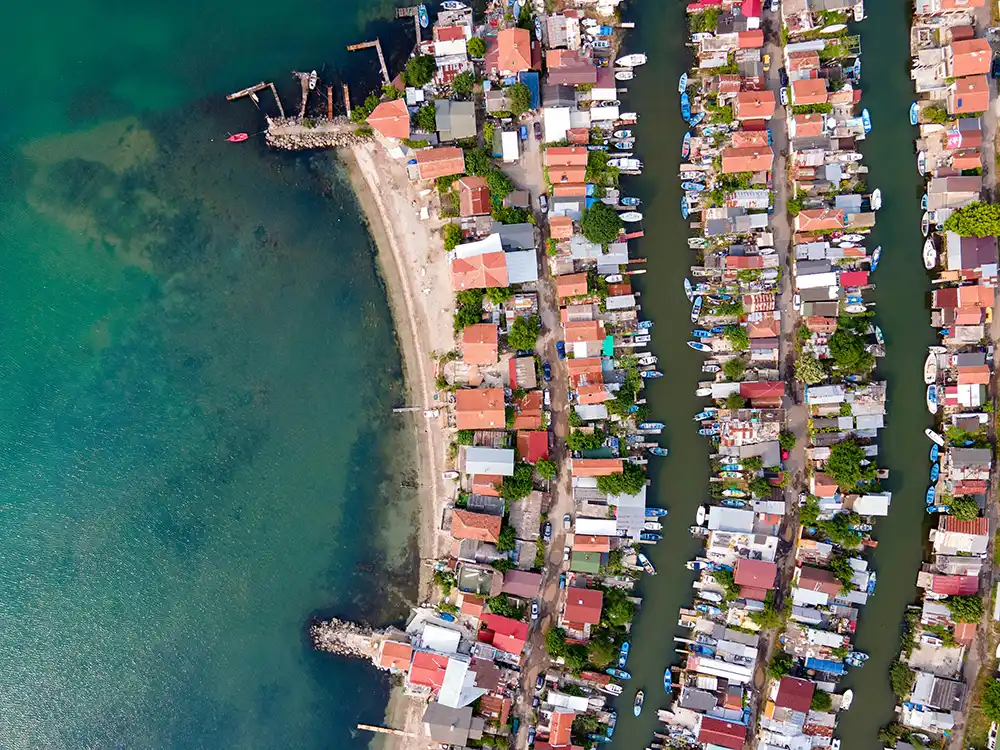
Tchengenе Skele lies about 15 km south of Burgas, tucked into a small bay before Rosenets Park. They say it resembles “fishermen’s Venice”—three narrow canals crammed with colorful boats, shacks and metal huts literally glued to the shoreline. The name comes from the Turkish “çingene iskele ”—“Gypsy dock”—supposedly named after Ottoman‑era charcoal‑burner dwellings.
In the 1970s, fishermen were pushed out of Burgas harbor during modernization. They moved here, built breakwaters, dug canals and constructed shacks from recycled materials. Around 50–60 fishermen live here permanently, and in summer and weekends the visitor crowd swells. Progress waits for none—traditional craft yielded to big fishing vessels, and now the area feels more like a coastal colony of memory‑keepers.
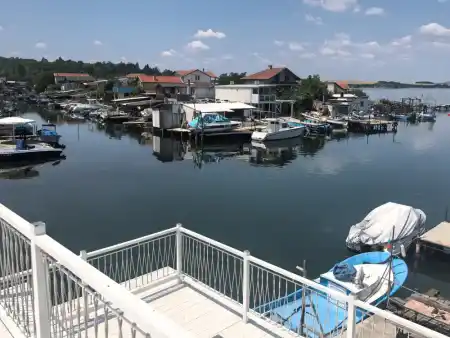
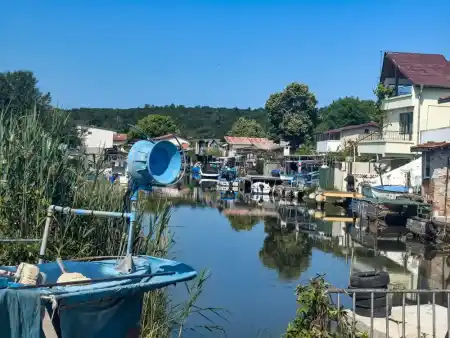

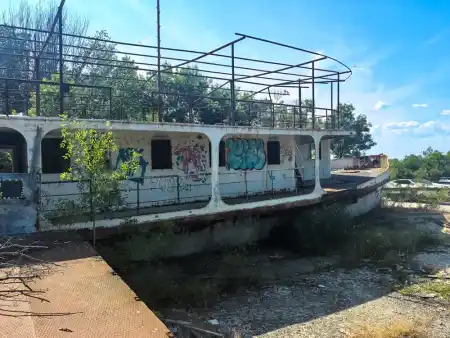
The main street is called ‘Konzervna’ — a playful nod to Steinbeck’s Cannery Row, carrying a hint of irony and a whole lot of local pride. The locals say there’s only one other street like it in the world — in Monterey, California.
Discovering Ribarsko Selishte
Without a car, it seemed impossible at first. “Nineteen kilometers on foot? Forget it,” I thought. Bikes won’t get you there, buses don’t go. Taxis drive you—but charge an arm and won’t wait for you.
Heading to Sozopol, I found a long‑distance bus that stops on demand about 3 km from this magical place. I jumped on, jumped off in time. No other travelers around—just forests, raw socialist nostalgia, emptiness. It was 35 °C, but thankfully mostly shaded. After half an hour, a little bridge and the first shacks appear. Every step fenced or piled up—you can’t see the canals.
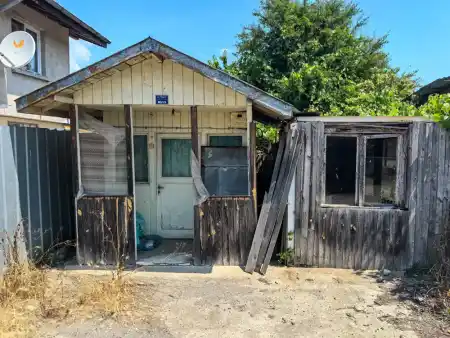
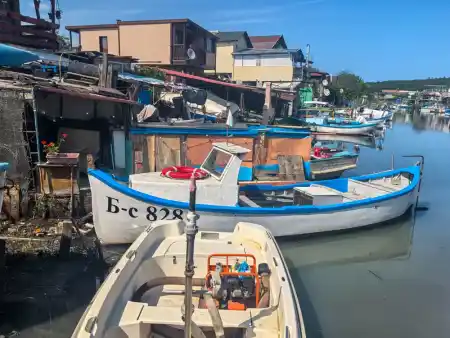
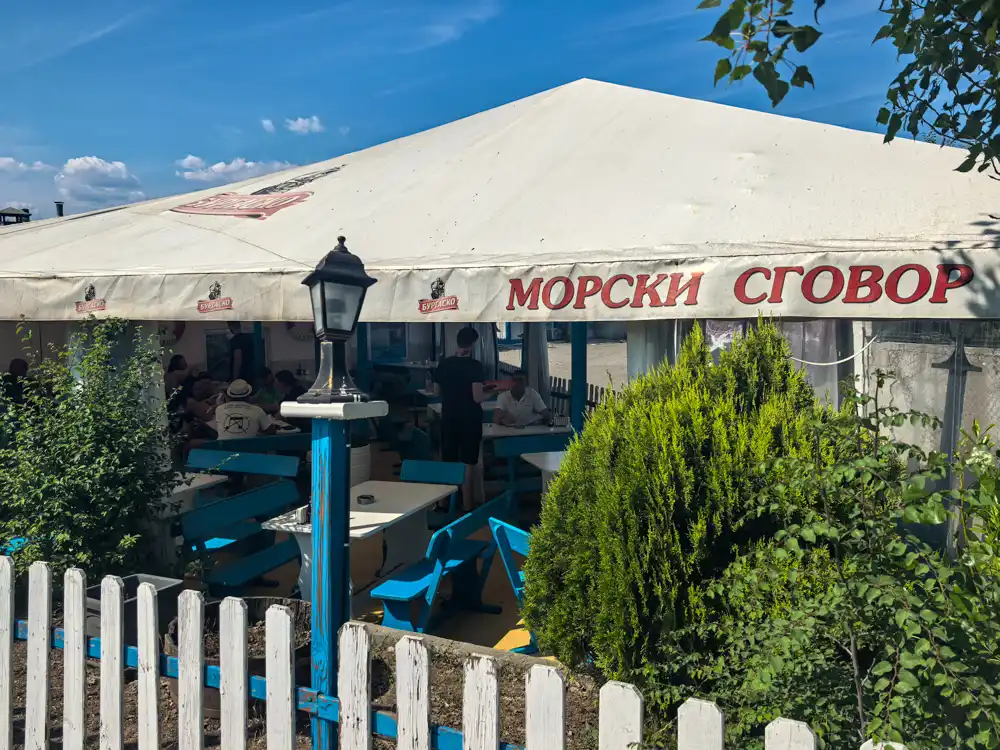
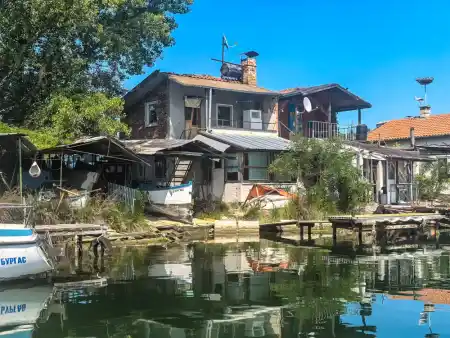
Then I spotted some modern buildings across the water. Later, Dimcho explained: in 2021 they opened a culture‑tourism complex funded by the EU—boat rides, water bikes, mini‑golf, events in an amphitheater. Supposedly to preserve authentic fishing tradition. But honestly, I’m not sure that works without diluting the soul.
“Отиди и гледай”
I edge into the first alley and peer through the fences. It feels like an allotment colony back home. Suddenly, a living soul appears—surprised, sizing me up. Tourists like me are rare here. We strike up a chat, and without hesitation he unlocks the gate and says: “Отиди и гледай.” (Go and watch.)
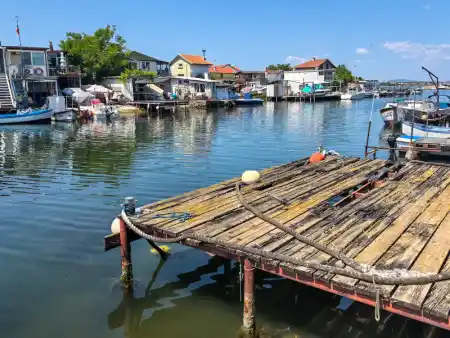
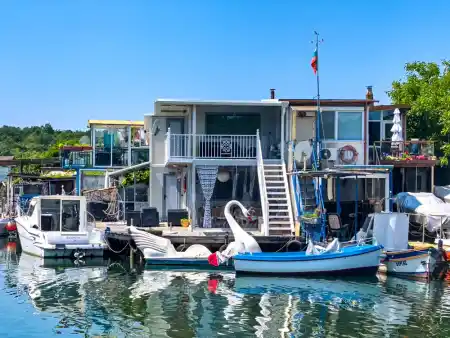
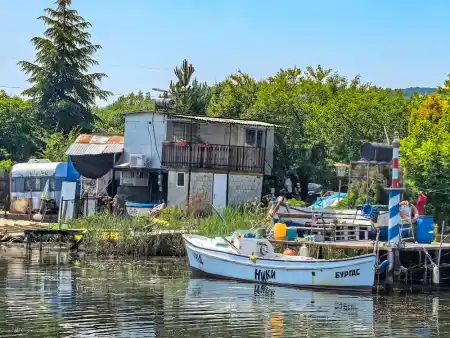
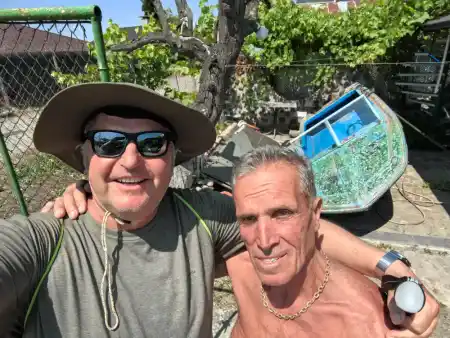
That gate throws me into another world. I start to get what “authentic Bulgaria” really means. I click photos, gaze. Before long, I’m talking with an older man who takes me deeper into his universe.
Dimcho invites me up to a terrace—my jaw drops. This isn’t some beaten‑down fishing shack: next to us, a parked Bombardier water‑scooter, a boat with several‑hundred horsepower. Swallows flit overhead. No mosquitoes worth mentioning. The scene hums with life.
The Kakophony of Time
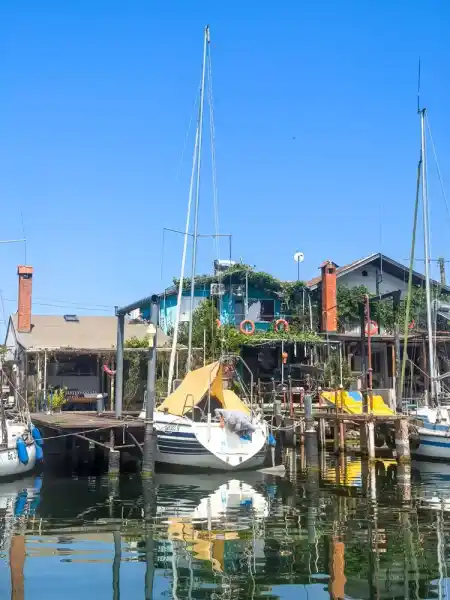
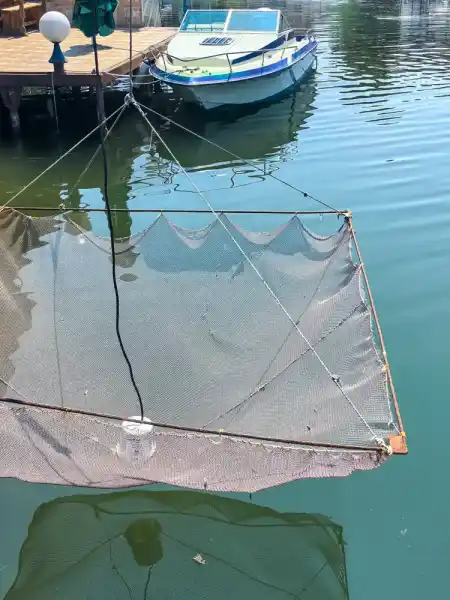
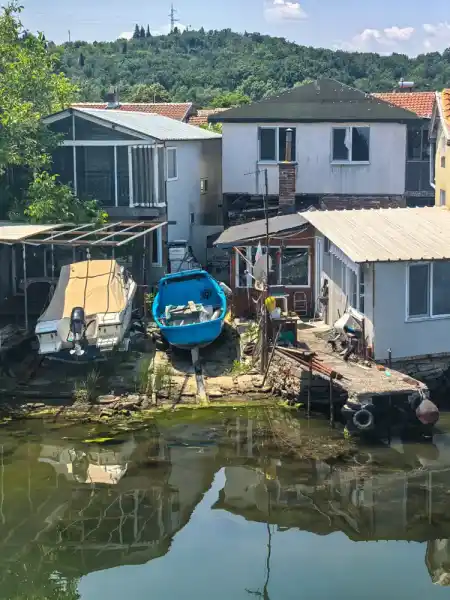
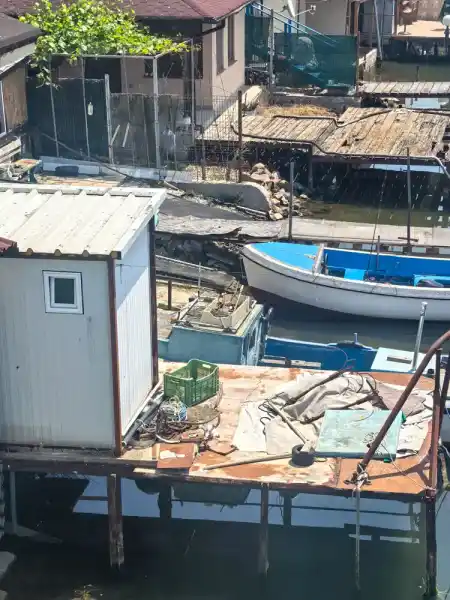
An over‑romantic Instagrammer might expect tough fishermen, rickety shacks using paraffin lamps. Instead, I discovered an epochal cacophony—a mix of human possibility and taste from the ’70s to today. This world draws me in. Its freedom, its no‑pretenses honesty, its rawness.
Dimcho tells me about Bulgarian history, the evolution of this pier. Today—only hobby‑fishing. The place only fills on weekends. On weekdays? Blissful quiet. Suddenly I realize I’m in another world. No tourism, no fluff, no kitsch. Just docks, boats, and shacks in the most wonderful patchwork of colors, materials, sizes. We climb to the rooftop. Ribarsko Selishte lies below like a secret.
A fishing boat glides in nearby. I watch the fisherman dock with deliberate calm, unload a modest catch—but light in his eyes. People greet each other easily. They’re friendly, helpful, real.
We lose track: an hour passes on that terrace. I envy Dimcho a little—his slow‑rolled life. No rush. Time just is. Swallows in flight. Water shifting lazily. The air quivering in the heat. Then Dimcho asks: “Want to go for a ride?”
Full Throttle Calm
Before I know it, we’re in a boat. Dimcho hits full throttle. My back protests—but thankfully I have a chin‑strap hat. Within minutes, we’re past the pier, heading toward Kraimorie. He points out coastline niches with pride and joy.
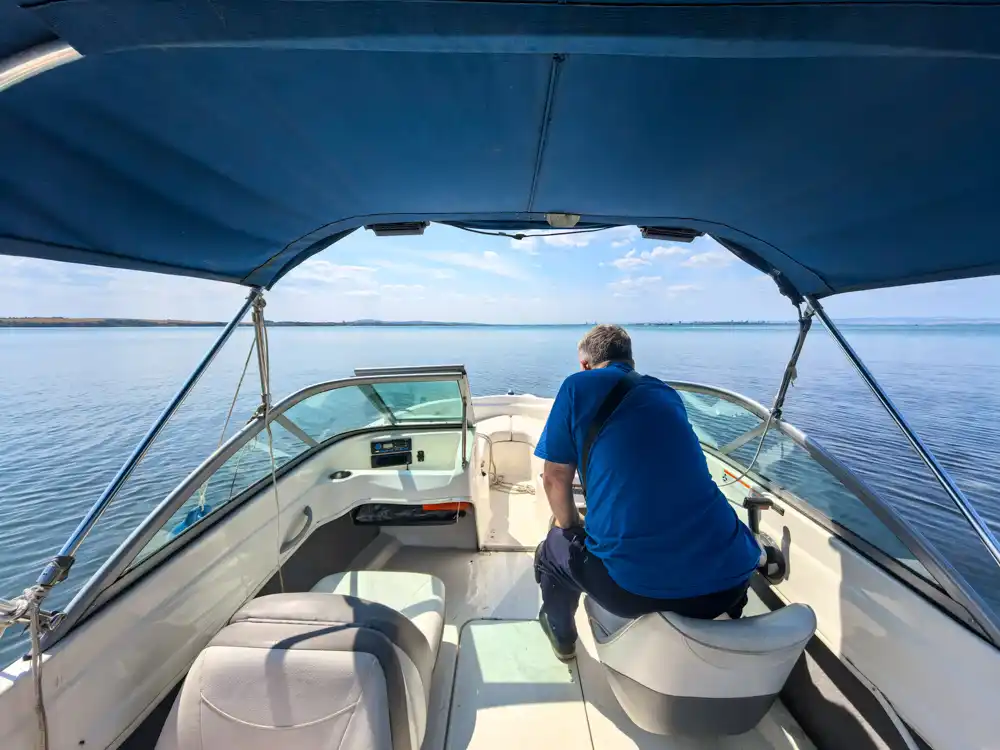
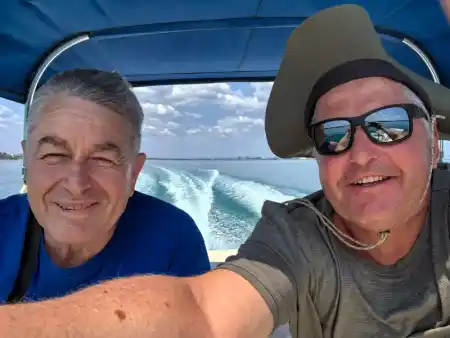
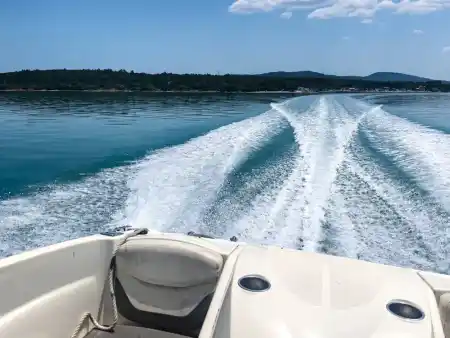
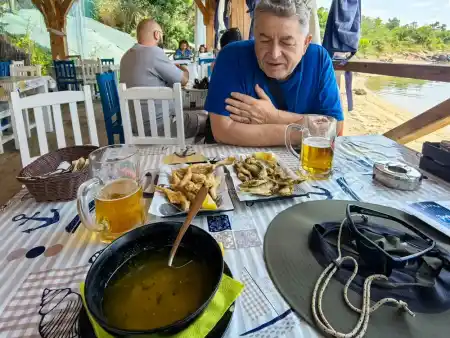
Ribena Chorba & Return
Half an hour later, we pull into Birariya Dalyana’s dock. On the terrace, views of the sea, I taste the best Ribena Chorba (fish soup) of my life—paired with a beer and crunchy “Caca (tsa tsa)” anchovies, lightly dusted in flour, starch & salt.
Back on shore, I stroll the canals again, passing another cult fish restaurant locals swear by in Burgas.
Ribarsko Selishte has its genius loci. You mustn’t rush here. Evening approaches, and I make my way back to the bus stop, naively hoping for a ride home. The bus would’ve come—if it stopped. It didn’t, not once for an hour. Finally I hitch a ride in a multicultural work‑van. They eyeball me, laugh, open the door. I get dropped at “Juh” station just in time—back to the balcony and evening’s swallow theater.
Thanks, Dimcho, for an unforgettable day.

